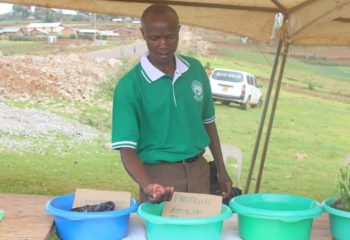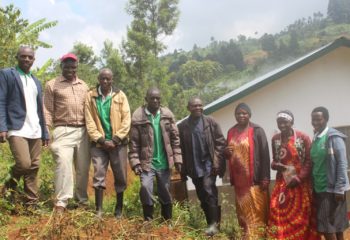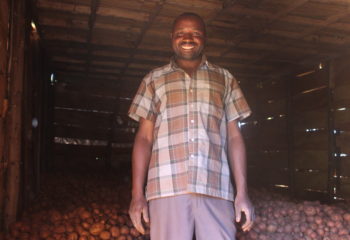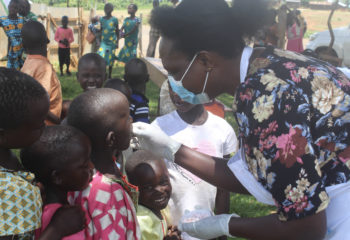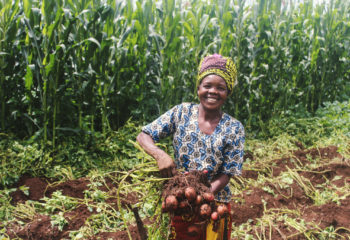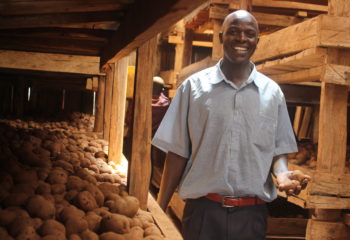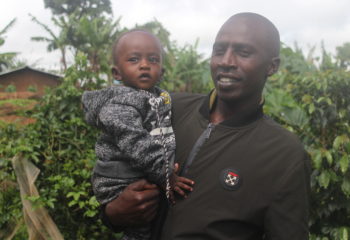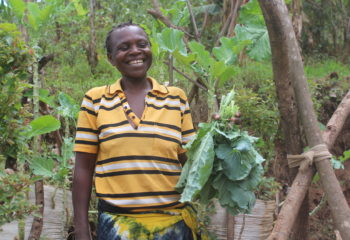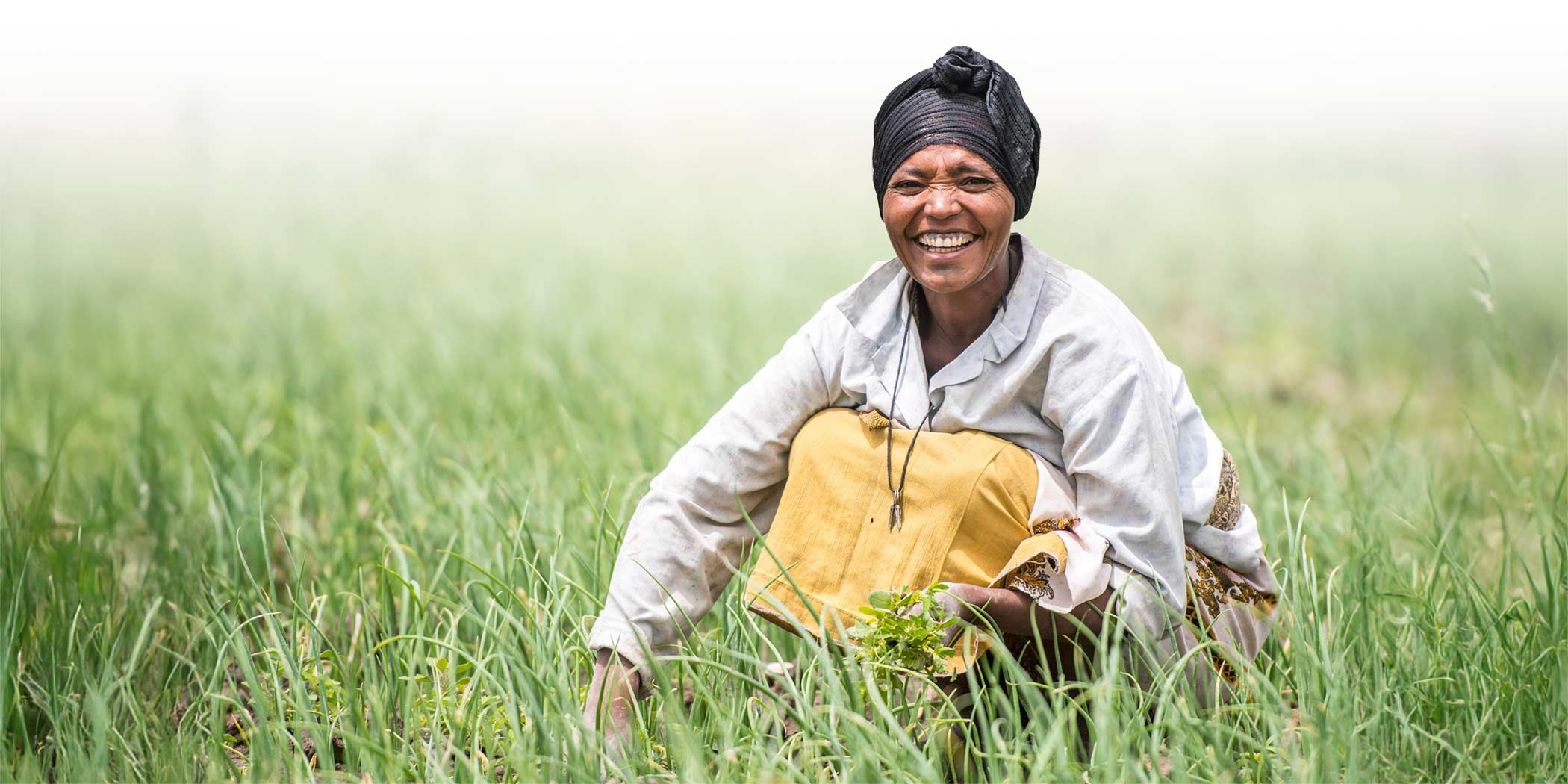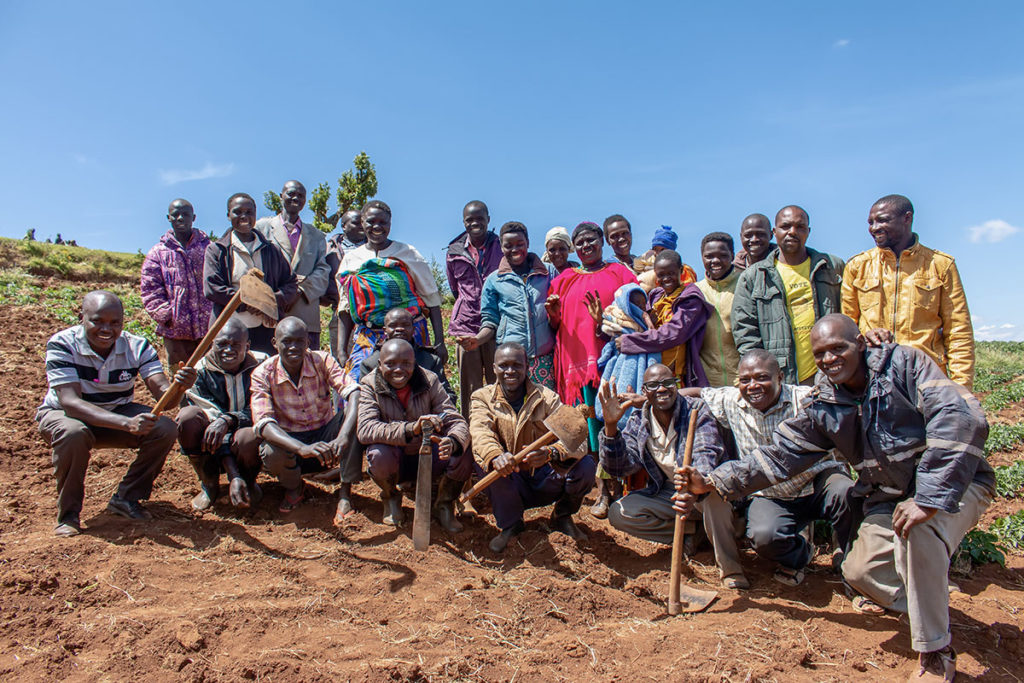
PNSP-Uganda was designed to increase smallholder potato productivity and strengthen potato sector coordination while improving household-level nutrition through dietary diversification.
The project worked with partners in the highlands of Eastern Uganda, where potato production, marketing, and processing form a major source of income for smallholder farmers, traders, and processors. Additionally, the project encouraged diversified diets, particularly for pregnant and breastfeeding women through the integration of nutrition and potato productivity at the farmer field business school (FFBS) and community levels.
PNSP-Uganda, a five-year (2017-2022) intervention, was funded by Deutsche Gesellschaft für Internationale Zusammenarbeit (GIZ) GmbH.
PNSP-Uganda was designed to increase smallholder potato productivity and strengthen potato sector coordination.
PNSP-Uganda Objectives
- Increase productivity of small-scale potato producers through capacity building in good agricultural practices (GAPs) and increased accessibility to quality seed potatoes.
- Strengthen coordination of the potato value chain through stronger public-private collaboration and national and regional platforms that guide sector governance and innovation.
- Improve the dietary diversity of vulnerable groups in Eastern Uganda.
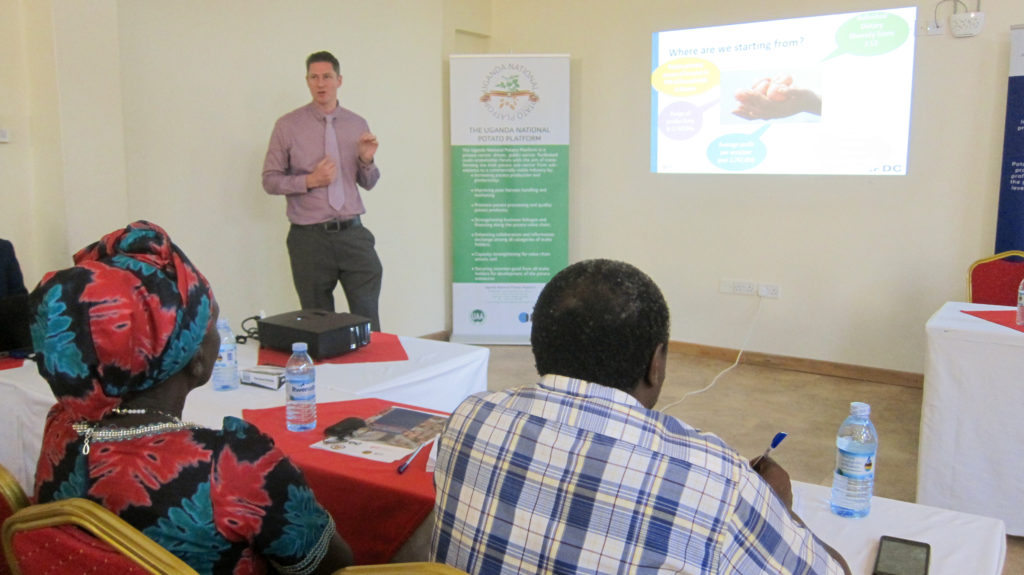
2022 Results
- Increased the productivity and associated incomes of 8,220 smallholder potato farmers (68% female) and improved nutrition through dietary diversification for 16,135 farmers (71% female) in Eastern Uganda.
- Boosted potato yields from 12.5 mt/ha at baseline to 18.5 mt/ha through the promotion of good agricultural practices.
- Supported four private seed producer associations to acquire 4,700 potato plantlets to yield a total of 74,174 mini-tubers.
- Provided hands-on training in establishing home kitchen gardens, cooking demonstrations, community dialogues, and radio messaging, improving knowledge of and practices around nutrition and increasing the Individual Dietary Diversity Score from 3.1 (out of 9) food groups at baseline to 6.0.
Results Targets for PNSP-Uganda
- 6,000 small-scale potato producers (at least 30% women) increase productivity by 40%.
- Availability of quality seed potatoes increases by 200% in Eastern Uganda.
- 50% of recommendations in the potato sector road map are addressed.
- 10 trade or market deals are brokered at the regional level.
- Six innovation projects are communicated through stakeholder platforms.
- Dietary diversity improves in Eastern Uganda, and 5,000 households improve their knowledge about family nutrition.
Project Partners
- Potato growers, particularly women potato farmers
- Potato value chain actors, such as traders, processors, seed producers and retailers
- GIZ
- International Fertilizer Development Center
- KIT Royal Tropical Institute of the Netherlands
- Uganda National Potato Platform
- Ministry of Agriculture, Animal Industry and Fisheries (MAAIF)
Project Documents
Final Report
Annual Reports
Technical Notes
Brochure(s)
Posters
Results
2022
- Increased the productivity and associated incomes of 8,220 smallholder potato farmers (68% female) and improved nutrition through dietary diversification for 16,135 farmers (71% female) in Eastern Uganda.
- Boosted potato yields from 12.5 mt/ha at baseline to 18.5 mt/ha through the promotion of good agricultural practices.
- Supported four private seed producer associations to acquire 4,700 potato plantlets to yield a total of 74,174 mini-tubers.
- Provided hands-on training in establishing home kitchen gardens, cooking demonstrations, community dialogues, and radio messaging, improving knowledge of and practices around nutrition and increasing the Individual Dietary Diversity Score from 3.1 (out of 9) food groups at baseline to 6.0.
2021
- Increased the productivity and associated incomes of 6,996 smallholder potato farmers (67% female) and improved nutrition through dietary diversification for 14,340 farmers (71% female) in Eastern Uganda.
- Boosted potato yields from 12.5 mt/ha at baseline to 18.5 mt/ha through the promotion of good agricultural practices.
- Supported four private seed producer associations to acquire 5,900 potato plantlets to yield a total of 61,174 mini-tubers.
- Provided hands-on training in establishing home kitchen gardens, cooking demonstrations, community dialogues, and radio messaging, improving knowledge of and practices around nutrition and increasing the Individual Dietary Diversity Score from 3.1 (out of 9) food groups at baseline to 5.9.
2020
- Potato yields have improved from 12.5 mt/ha at baseline to 14.4 mt/ha in 2020.
- To address shortages of quality seed in the Mount Elgon highlands, four farmer-based seed producer associations were supported in their establishment of screenhouses to produce early generation seed, and 34 seed producers have been trained to produce quality declared potato seed.
- Through hands-on training in the establishment of home kitchen gardens, cooking demonstrations, community dialogues and radio messaging, knowledge of and practices around nutrition have improved, with the Individual Dietary Diversity Score increasing from 3.1 (out of 9) food groups at baseline to over 5 in 2020.
2019
- Over 2,000 farmers from 180 farmer field business schools (FFBS) were trained on good agricultural practices (GAPs) for sustainable potato production (74.5% females), with over 70% of the farmers applying 18 of the 25 GAPs.
- Nearly 4,000 farmers from 180 FFBSs were trained on marketing and business (72% females).
- More than 3,500 FFBS farmers reached on key nutrition topics, such as dietary diversity, through training and community dialogues (71% women). Individual dietary diversity score has improved from 3.1 (out of 9 food groups) at baseline to 5.8 food groups utilized by the end of 2019.
- 30 local seed producers were identified and trained on seed potato production.
- More than 50 FFBS facilitators were trained on the agronomy and nutrition curriculum.

